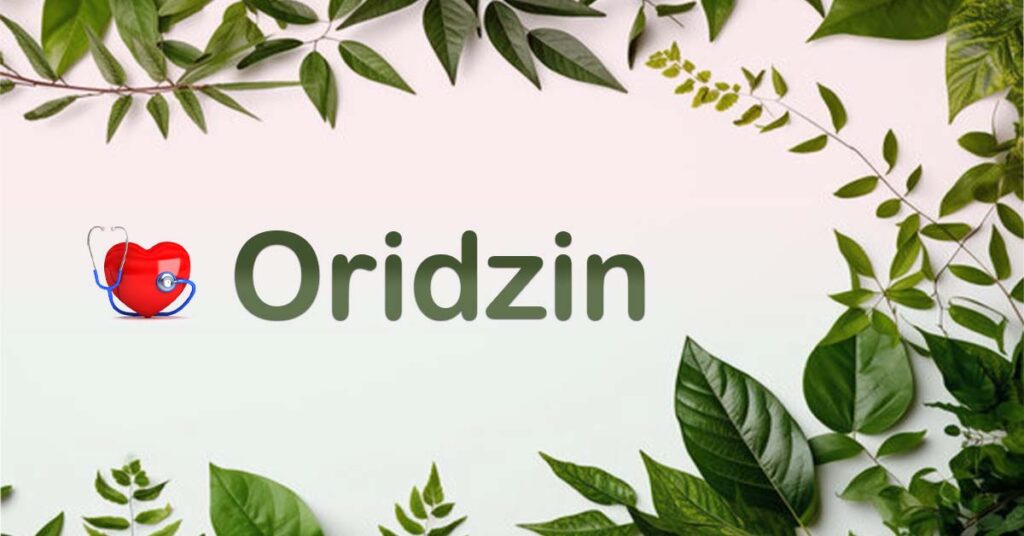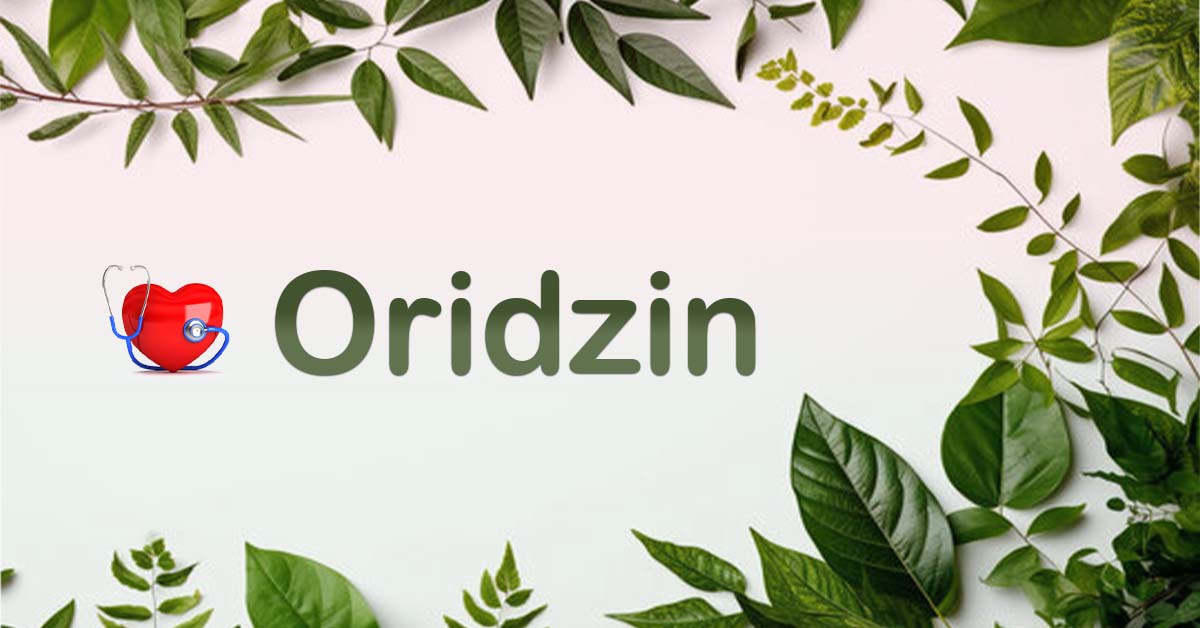In the world of natural health, some folks talk about oridzin. It’s a special antioxidant found in plants like ramulus mori, a Chinese herb. People believe it can be good for your health. Despite its relative obscurity, oridzin boasts a trove of health benefits that extend far beyond its initial mention. Recent research studies spotlight its potential as an anti-inflammatory, anti-diabetic, anti-cancer and liver protective agent. Oridzin presents itself as an unexplored resource worth investigating for anyone looking for secure, all-natural solutions to support health and longevity.
This guide aims to put light on oridzin, its origins, mechanisms within the body and the numerous health benefits it provide.
What Is Oridzin?

Oridzin is a natural flavonoid compound classified under isoflavones that is found in plants like Rabdosia rubescens. This group of organic compounds is known for their antioxidant and anti-inflammatory properties. While experimental studies indicate promising results regarding oridzin’s ability to support healthy cell growth, more research is imperative to fully comprehend its effects.
Antioxidant Effects
Functioning as an antioxidant, oridzin safeguards cells from the havoc wreaked by free radicals—unstable molecules capable of damaging cells and DNA. By neutralizing these free radicals, oridzin aids in preventing potential cellular damage.
Anti-Inflammatory Effects
Oridzin exhibits anti-inflammatory prowess in various studies. Chronic inflammation, a potential precursor to health issues, can be mitigated by oridzin through the inhibition of inflammatory pathways.
Oridzin Other Potential Benefits
Research suggests that oridzin may extend its benefits to supporting healthy cell growth, maintaining blood sugar levels and protecting brain health by preventing oxidative stress and inflammation.
However, despite these promising attributes, further research is imperative to validate these potential benefits and establish ideal dosage levels for human consumption. Before incorporating oridzin supplements or extracts into your routine, consulting with your healthcare provider is crucial.
The Health Benefits of Oridzin
Improved Heart Health
Oridzin exhibits the potential to lower high blood pressure and cholesterol levels, contributing to a healthier cardiovascular system. By reducing LDL (“bad” cholesterol) and increasing HDL (“good” cholesterol), oridzin aids in achieving a balanced cholesterol profile and improving circulation.
Enhanced Cognition
Functioning as an antioxidant in the brain, oridzin protects neurons from free radical damage, potentially slowing age-related cognitive decline. Studies hint at oridzin’s capacity to enhance memory, focus and attention span, offering potential benefits in combating neurodegenerative diseases.
Reduced Inflammation
Chronic inflammation is a common precursor to disease, can be alleviated by oridzin through its anti-inflammatory effects. This can potentially alleviate joint or muscle pain and slow the progression of autoimmune disorders.
Improved Diabetes Management
Oridzin showcases positive effects on blood sugar regulation and insulin sensitivity, making it a promising natural treatment for diabetes and prediabetes.
The Best Natural Sources of Oridzin
For those considering incorporating oridzin into their lifestyle, exploring natural sources is an excellent starting point. Here are some plants rich in oridzin:
- Chinese Skullcap
- Scientific Name: Scutellaria baicalensis
- Oridzin Content: 0.6-2.7%
- Forms: Capsule, tablet or liquid extract
- Rabdosia Rubescens
- Oridzin Content: Approximately 1%
- Forms: Supplements containing an extract of the herb
- Isodon Amethystoides
- Scientific Name: Purple sage or Chinese germander
- Oridzin Content: 0.5-1.5%
- Forms: Supplements with an extract of purple sage leaves
- Phellodendron Amurense
- Scientific Name: Amur cork tree
- Oridzin Content: Up to 1.2%
- Forms: Supplements with an extract of Amur cork tree bark
While these herbs provide a natural source of oridzin, consulting with a healthcare professional before incorporating supplements is crucial to ensure safety and determine proper dosage.
How Can Oridzin Extract Be Used as a Supplement?
For those opting for oridzin supplements, here’s a guide to effective and safe supplementation:
- Purchase a High-Quality Supplement
- Look for an oridzin extract with at least 25-50% trans-piceatannol, the metabolite responsible for its benefits.
- Choose products from Good Manufacturing Practices (GMP) certified facilities for quality and safety.
- Verify the ingredient list to ensure it contains only oridzin extract with minimal fillers or additives.
- Take the Recommended Dosage
- The typical dosage is 100 to 200 milligrams once daily, depending on concentration.
- Adhere to the dosage instructions on the product packaging and avoid exceeding the recommended amount.
- Start With a Lower Dose and Gradually Increase
- Begin with a lower dose (around 100 milligrams) for the first week, gradually increasing to 150 milligrams in the second week if tolerated.
- This gradual approach helps the body adjust and minimizes potential side effects.
- Consider Cycling Your Usage
- Some research suggests cycling oridzin extract—taking it daily for 4 to 6 weeks, followed by a 2 to 4-week break.
- Cycling may prevent tolerance buildup and enhance the effects upon resuming usage.
- Watch for Possible Side Effects
- Potential side effects include digestive upset, nausea, dizziness and headaches.
- Discontinue use and consult a healthcare professional if severe or persistent side effects occur.
- Given its potential interactions with medications, consult with your doctor before use, especially if on prescription drugs.
Oridzin Side Effects and Safety Concerns
While oridzin holds promise for health benefits, it’s crucial to be aware of potential side effects and safety concerns:
- Interactions with Medications
- Oridzin may interact with certain medications, particularly those metabolized by CYP2D6 or CYP3A4 enzymes.
- Consult with a healthcare professional if taking medications such as antidepressants, antihistamines or calcium channel blockers.
- Pregnancy and Breastfeeding
- Limited data on oridzin’s safety for pregnant or breastfeeding women necessitates caution and supplements are not recommended in these cases.
- Possible Side Effects
- Potential side effects include nausea, headaches, dizziness, fatigue and rare occurrences of a skin rash.
- Adhering to recommended dosage levels (not exceeding 300 mg per day) and starting with lower doses can mitigate these risks.
Final Words on Oridzin
While oridzin holds promise as a natural antioxidant and anti-inflammatory compound, cautious use under the guidance of a healthcare professional is a paramount. Even though oridzin is usually safe, everyone’s different, so it’s crucial to use it in moderation and get advice tailored just for you.










